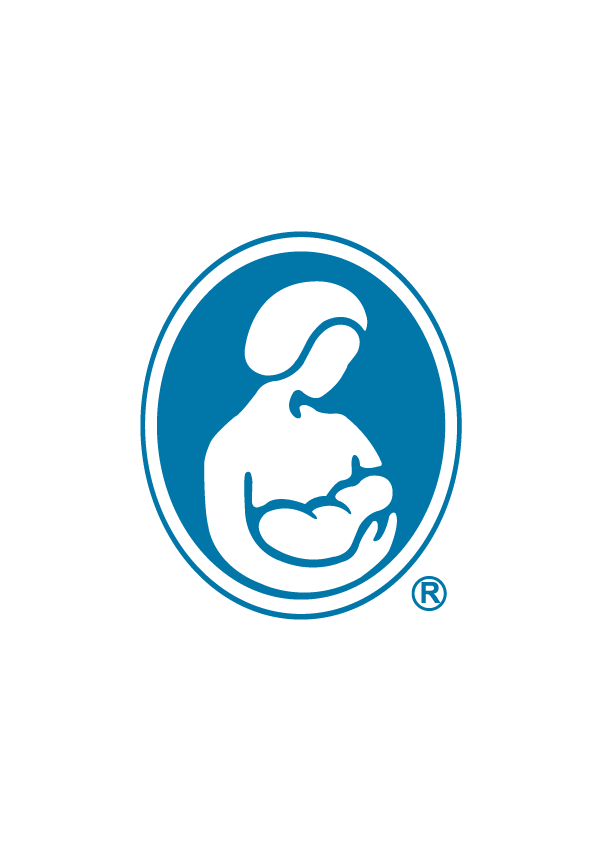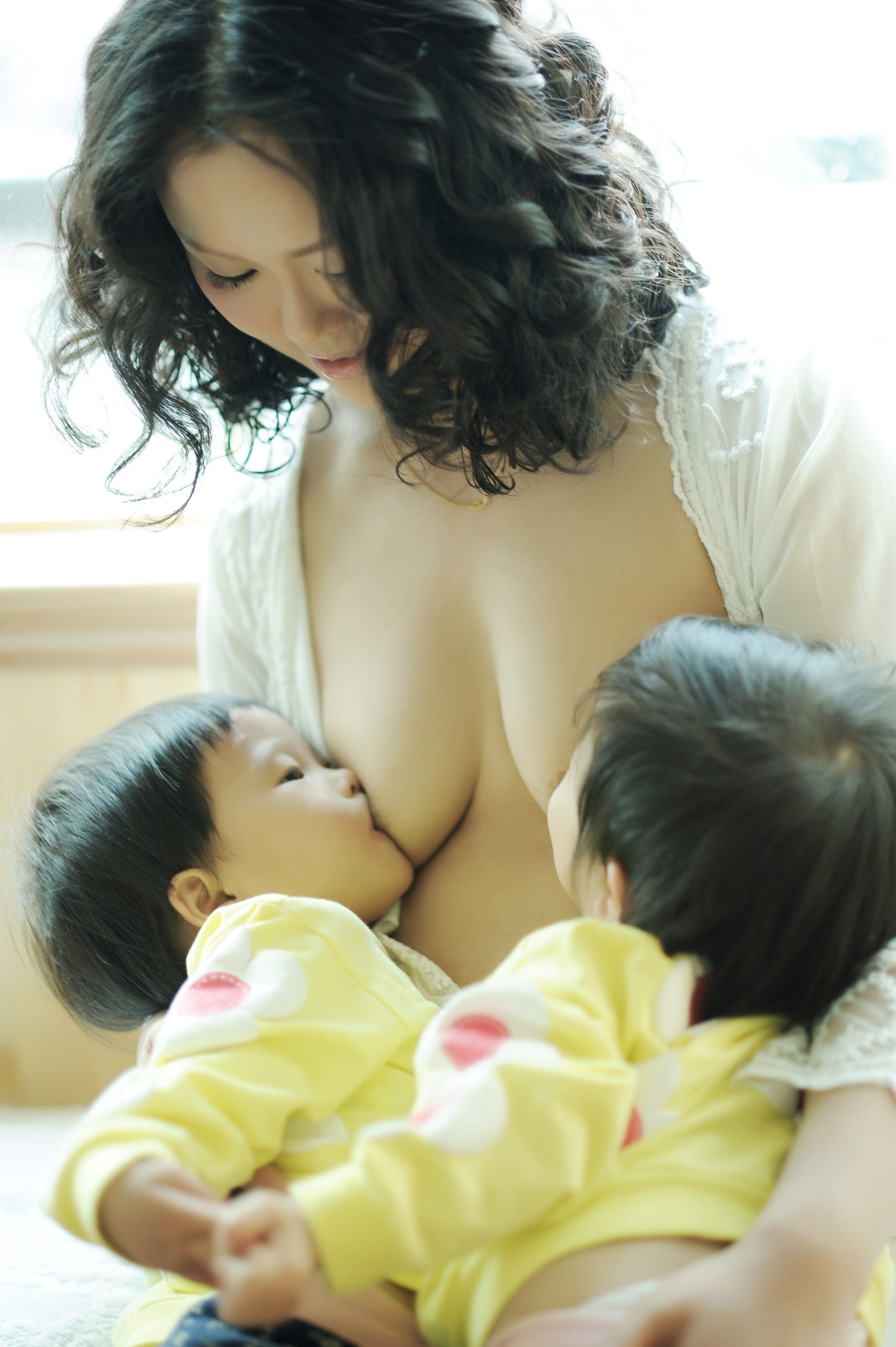Missy 译 Shiuh-jane,Daisy 审校
Schaumburg, IL (August 2003)-Breastfeeding remains the best option for feeding infants, even as attention is focused on the many chemicals that may find their way into a mother‘‘s body, according to La Leche League International, the world‘‘s foremost authority on mother-to-mother breastfeeding support.
绍姆堡,伊利诺伊州(2003年8月)—作为世界上最权威的,由母亲帮助母亲支持母乳喂养的机构,国际母乳会表示,尽管人们越来越多地关注许多化学物质可能以不同的方式进入母亲身体,但母乳喂养仍然是母婴的最佳选择。
The four specimens often used to test levels of chemicals in the human body are urine, blood, hair and human milk. This monitoring is done to determine levels of environmental chemicals in different geographical areas. Any substances found in human milk because of this routine testing are a reflection of the exposure in all humans living in that particular area and not a statement about breastfeeding.
经常用来测试人体中的化学物质水平的四个样本是尿液,血液,毛发和人乳。这种监测是为了确定在不同地区环境中化学物质的水平。在母乳中发现的化学物质是人们在特定生活区域中所受影响的常规测试反映,并非关于哺乳的声明。
Scientific research shows consistently that even in a world exposed to so many chemicals, breastfeeding offers advantages which outweigh the risk of ingesting possible contaminants. Indeed, the benefits of breast milk, which includes high levels of antioxidants, may prove to be essential to compensate for and outweigh the risks of toxic effects from the environment. Today the focus of scientific concerns is being directed toward removing potentially toxic chemicals from the environment while recognizing the value of human milk, the only source of optimal nutrition for infants.
一贯的科学研究表明,即使是在接触到这么多化学物质的世界,母乳喂养的优势超越可能摄入受污染物质的风险。事实上,母乳中含有大量的抗氧化剂,这一点至关重要,并可以证明母乳能够弥补并超越环境的毒副作用的风险。现今科学关注的焦点正集中于如何清除环境中的潜在的有毒化学物质,同时他们也认识到母乳作为婴儿最佳营养的唯一来源的宝贵价值。
A discussion of this topic is incomplete without pointing out the well-documented nutritional inadequacies and detrimental health consequences of artificial baby milk, which may be contaminated both as products of the same environment and through manufacturing. In addition, human milk, unlike manufactured formula, does not add to the ecological burden of the planet.
根据资料表明,在同一污染环境中制造的或是在制造过程中受到污染的人工配方奶,会造成婴儿营养不足并引发疾病。若不指出这一点,关于这个主题的讨论是不完整的。此外,母乳的产生不像生产配方奶那样,会给地球增加额外的生态负担。
Human milk cannot be duplicated. It is a living, changing fluid which continually adapts to the needs of the developing infant. Professional research demonstrates that breastfed infants have significantly lower morbidity rates. In addition, studies show that breastfeeding offers significant immunologic, developmental and nutritional benefits.
母乳不能被复制。它是一种根据婴儿成长的需要,会不停地调整成分的有生命力的液体。专业研究表明,母乳喂养的婴儿发病率显著较低。此外,研究也显示母乳喂养能够在婴儿的免疫力、发育水平和营养成分方面提供重大的好处。
La Leche League International‘‘s Center for Breastfeeding Information maintains the world‘‘s largest collection of studies on breastfeeding and human milk. La Leche League International fulfills its mission of offering information and support to women who wish to breastfeed by holding monthly meetings, offering telephone counseling and on-line support, through educational meetings and by publishing books and pamphlets on breastfeeding. For further information on this or any breastfeeding topic, visit our informative Web site at www.lalecheleague.org or call 1-847-519-7730.
国际母乳会的母乳喂养信息中心拥有世界上最全面的关于母乳喂养和母乳的研究成果。国际母乳会通过举行月度聚会、提供电话咨询和在线支持、通过教育性研讨会、出版母乳喂养书籍和手册等方式以实现它对希望进行母乳喂养的妇女提供信息和支持的使命。要了解关于国际母乳会或任何相关母乳喂养的进一步信息,可访问网站www.lalecheleague.org,或致电1-847-519-7730。
Information on Contaminants and Minimizing Exposure
Routine monitoring of chemicals in human urine, blood, hair and milk show that environmental contaminants are present, not just in these testing specimens, but in the fat cells of everyone living in the area tested. Their presence is a reflection of the substances that exist in a particular community. This is a reason to eliminate toxins from the environment–not a reason to eliminate breastfeeding.
关于污染物和减少曝露于污染源的相关信息
人类尿液、血液、毛发和乳汁中的化学物质的常规监测表明,环境污染物不只是存在于这些测试标本中,也存在于居住在测试区域内每个人体内的脂肪细胞中。这些检验结果是特定社区中化学物质存在的反映。所以人们要消除的是环境毒素,而不是取消母乳喂养。
Virtually every infant born today already has a body burden of industrial chemicals. Indeed, evidence demonstrates that babies are more vulnerable to transmission of substances during the prenatal stage than after birth.
如今出生的每一个婴儿身上几乎都有着工业化学物质的影响。事实上,有证据表明,与出生后相比,在怀孕期间,胎儿更容易受到母体传输物质的影响。
While human milk has higher levels of some persistent organic pollutants than artificial baby milk, infant formula is not pollutant free and has been, among other things, associated with higher levels of heavy metals, phytoestrogens and bacteria. Many well-documented studies demonstrate the health risks of formula feeding, including life-threatening errors in the manufacturing process. Human milk will never be recalled because of manufacturer error.
尽管人乳比人造奶地含有更多的某些持久性有机污染物,但婴儿配方奶也并非完全无污染,它含有更多的重金属、植物雌激素和细菌。许多证据确凿的研究都表明,配方奶喂养存在健康风险,其中还包括生产过程中足以致命的人为错误。人奶则永远不会因为制造商的错误而被召回。
There is evidence that human milk with its species-specific optimal nutrition and its anti-inflammatory agents, including antioxidants, helps a child develop a stronger immune system and other potential protections against environmental pollutants and pathogens. In regard to organochlorine compounds, a recent study in Pediatrics states: “Long-term breastfeeding was found to be beneficial to neurodevelopment, potentially counterbalancing the impact of exposure to these chemicals through breast milk.”
有证据显示,人类母乳中含着人种特有的最佳营养和消炎成分,包括抗氧化剂,可以帮助孩子发育更为强壮的免疫系统,并对孩子抵御抗环境污染物和病原体提供潜在保护。在关于有机氯化合物,儿科最新的一项研究表明:“长期母乳喂养有利于神经系统发育,有可能通过母乳制衡抵消接触到的化学物质的危害。”
The World Health Organization, the American Academy of Pediatrics, and other major health associations, overwhelmingly support the importance of breastfeeding even in a contaminated world. Documented benefits of breastfeeding include reduced incidences of the following: insulin dependent diabetes, some childhood cancers, ear infections, upper respiratory infections, obesity and other health problems. In addition, studies suggest that breastfeeding may have a positive influence upon the development of verbal and general intelligence.
世界卫生组织,美国儿科学会,和其他主要的健康组织,极力支持在受污染的世界进行母乳喂养的重要性。研究证明母乳喂养有利于降低以下疾病发病率:胰岛素依赖型糖尿病,一些儿童期癌症,耳部感染,上呼吸道感染,肥胖和其他健康问题。此外,研究表明,母乳喂养还可能对语言和智力发育产生积极的影响。
It is impossible to reduce exposure to all chemical elements. However, for those who would like to reduce contact with chemicals especially before pregnancy, and during pregnancy and lactation, the following suggestions may be helpful.
我们无法避免使自己减少暴露在所有的化学物质环境中。然而,对于那些在孕前,孕中和哺乳期间希望减少与化学物质接触的人们,以下的建议可能会有帮助。
10 Simple Steps to Help Reduce the Level of Chemicals in Your Body
10个简单的步骤来帮助减少你身体中的化学物质
Avoid smoking cigarettes and drinking alcohol since levels of contaminants have been found to be higher in those who smoke and drink alcoholic beverages.
避免吸烟和饮酒,因为那些吸烟和饮用含酒精饮料的人体内污染物水平更高。
Be aware in purchasing homes and buildings that have been treated with pesticides for termites and/or older homes that might have lead-based paints.
在购买房屋和建筑物时,请注意该物业是否已被白蚁杀虫剂处理,或老房子是否有铅基油漆。
In general, eat a variety of foods low in animal fats, remove skin and excess fat from meats and poultry. Avoiding high-fat dairy products may reduce the potential burden of fat-soluble contaminants.
通常来说,多吃各种动物脂肪含量低的食物,肉类和家禽应去除皮及多余的脂肪。避免吃高脂乳制品, 这可以减少脂溶性污染物质给身体带来的潜在负担。
Increase consumption of grains, fruits and vegetables. Thoroughly wash and peel fruits and vegetables to help eliminate the hazard of pesticide residues on the skin. When available, eat food grown without fertilizer or pesticide application.
多吃谷物、水果和蔬菜。水果和蔬菜应彻底清洗和去皮以清除残留农药。如有可能,食用未使用化肥或农药的食物。
Avoid fish such as swordfish and shark or freshwater fish from waters reported as contaminated by local health agencies.
避免食用诸如剑鱼和鲨鱼的鱼类,或当地卫生机构报告为污染水域的淡水鱼。
Limit exposure to chemicals such as solvents found in paints, non-water based glues, furniture strippers, nail polish, and gasoline fumes.
避免暴露在某些化学溶剂中,如油漆,非水基胶水,家具除漆剂,指甲油,汽油烟气等。
Remove the plastic cover of dry cleaned clothing, and air out the garments in a room with open windows for 12-24 hours.
去掉干洗服装的塑料包装,在开窗房间里让衣服通风12-24小时。
Try to avoid contact with incinerator discharge, preserved wood, or produce grown near incinerators.
尽量避免接触垃圾焚烧厂排放物、涂有防腐剂的木材、或在焚烧厂附近种植食用植物。
For those in the workforce, attempt to avoid occupational exposure to chemical contaminants and seek improved workplace chemical safety standards for all employees, especially pregnant and lactating women.
请职工试图避开职业性暴露于化学污染物中,并为所有员工,特别是怀孕和哺乳的妇女,寻求更高的职场化学物质安全标准。
Encourage other family members to be sensitive to contaminant residue they may inadvertently bring into the home.
鼓励其他家庭成员对他们可能会在无意中带入家的污染物残留保持敏感。

